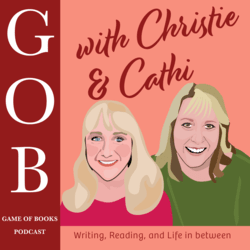Finding a literary agent is a grueling process, so staying positive and not letting it take over your life is essential. In case you haven’t noticed, I lean toward optimism. When I finished my manuscript armed with only the basics on getting published, I thought getting an agent would be easy. That’s right, I own my words … I said would, not wouldn’t. And I was wrong! I have no way of knowing the exact figure but I would say that the ratio of hopeful writers to agents is somewhere near a million to one. This makes literary agents extremely selective (think George Clooney pre-Amal).
In my case, I started my agent search, lovingly referred to as querying, before my book was ready. I didn’t realize the extensive editing that comes after typing “THE END” and rushed to share my great story with the agents of my favorite bestselling authors. Now I realize that if they even got to the point of reading my first few pages they quickly rejected it, most likely because of common writing and grammar mistakes. Why would George Clooney even give the time of day to a woman who showed up to the party in dirty sweats after not bathing in a couple days? It’s hard to see the potential under the greasy hair, body odor, and bad breath. Once I spent more time (100s of hours) editing my manuscript, I felt I was ready to query again.
Here’s where the process gets even tougher. Now we have to sell ourselves as well as our story. The query letter is extremely important. Certain information needs to be given in a professional manner, but then it gets trickier because each agent wants to get a feel for the author and if they are a good fit. I needed to let them know my title, genre, word count, brief description (think jacket cover), and any pertinent information about me … all while letting my voice shine through. Does George Clooney like the natural look or dramatic make-up or sandals or pumps or polka dots or stripes? Agents are the same; they have preferences that they might be looking for in the query. The more you know about the agent, the better the chances for a look past the query letter. Here’s the time to let them know that I’ve researched them and think I would be a good fit. This research is helpful both ways. If the agent is looking for the next geriatric romantic novel then I shouldn’t pitch them my young adult thriller. I should also add pertinent and recent information … not sure they care about my winning the middle school spelling bee or that I was editor of my high school newspaper … but maybe I will mention this GOB blog as proof that I can write on a deadline (here’s where you follow our site so that you can read our bi-weekly blogs and keep me honest).
Once the agent has weeded through all the bad grammar and “not the right fits,” they finally can delve into the story. As many of the agents say, they just have to love your manuscript to represent it. Everything can look good but your writing voice or style might not be their favorite. Perhaps George Clooney likes a human rights lawyer better than an Oscar nominated actress? One agent may love their thrillers to have a single detective while another wants an ensemble of amateur detectives … some are tired of serial killers and others can’t get enough of them … the list of possibilities is infinite. That is why we hear over and over about the numerous rejections that even the top best-sellers went through to get published. It can often come down to a numbers game and the best advice is to listen to the feedback from the agents and if it is positive, except for the “love it” factor, then keep at it. Eventually the perfect match will come along.
So whenever I start getting sucked into the roller coaster of querying … when I find myself checking my inbox every couple minutes … I take some deep breaths and close my email. Then I open Word and start doing what makes me happy. I jump into my characters and let my imagination soar. Chocolate helps too!



Comments are closed.